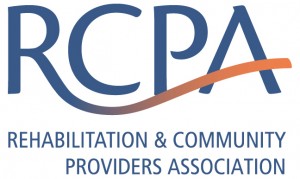2020 Federal Grants Technical Assistance Webinar
Mark your calendars and plan to join us for a FREE Federal Grants Technical Assistance Webinar on
May 21 from 10:00 am – 11:15 am. The U.S. Department of Health and Human Services (HHS),
Health Resources and Services Administration (HRSA), Region III Office, will present key steps
and resources for seeking federal grants. This session is recommended for community partners
interested in learning more about federal grant support for health and human service programs.
Individuals at all levels of experiences, from those considering a first grant submission to those with prior grant writing experience, are welcome.
Topics that will be covered are:
– Overview of HHS/HRSA national and regional offices
– Identifying federal grant opportunities
– Navigating the federal grant application process
– Accessing technical assistance resources
– Overview of fiscal grant requirements
Presenters:
Rhonda Jackson, MSW
Public Health Analyst
HRSA/Office of Regional Operations
Region III – Philadelphia Regional Office
Stephanie Sowalsky, CPA
Special Assistant to the Director of Division of Financial Integrity
HRSA/Office of Financial Assistance and Management (OFAM)
In order to receive the link to the webinar, you will need to register here. The link will be sent out a few
days prior to the webinar.
National Alliance for Direct Support Professionals Resources
IDD Members Action Needed: Contact Your Legislators
RCPA has been actively advocating for financial assistance for IDD providers to be implemented as promised by ODP. As of today, April 22, 2020, rate changes have not been made. As a result, we have sent the following email to legislators in PA. We urge you to contact your legislator to encourage them to take immediate action!!
COVID-19 Crisis in Funding: The Immediate Need for Enhanced IDD Rates
April 22, 2020
The COVID-19 crisis has hit multiple areas of the Commonwealth’s Health and Human Services system. Rightly so, the emphasis has been on the availability and safety of medical and emergency medical care. Availability of protective equipment, testing, and treatment interventions (e.g., ventilators) have been the primary focus.
There is a population, however, that is at extreme risk through this period – those with intellectual and developmental disabilities (IDD) residing in community residences (i.e., group homes). These individuals require 24/7 services from a dedicated workforce (direct service professionals, or DSPs) and the consumers themselves often have behavioral and/or medical complications that make their support that much more difficult during this period.
The low pay available for these DSPs has been well documented and much discussed at the PA legislature through past budget cycles. In this time of crisis, this pay disparity is heightened. We need these professionals more than ever to continue to perform this important work with an extremely vulnerable population. Simply put, every day the DSPs come to work understanding that they could be exposed to the virus and take this back with them to their family and loved ones.
Early in the process the Office of Developmental Programs (ODP) promised IDD providers a rate “enhancement” to recognize the critical and difficult work of the DSPs. Through many meetings ODP noted that assumptions were being reviewed and new rates were pending. Several agencies, desperate to keep the workforce in place, even jumped out and began offering staff increased pay, often referred to as “battle” or “hero” pay.
Now we learn that the promise of enhanced rates has been removed from the table. The exact “behind the scenes” driver of this decision is unclear, other than it is being held at “the governor’s office” or “the budget office.” The fact that it has disappeared, however, cripples the situation.
It must also be remembered that all these IDD programs are 100% funded by the Commonwealth. There is no cost-shifting or cost-offset ability. Unless additional funding comes from ODP or another Commonwealth resource, there is no money available.
IDD providers are faced with some very difficult and real decisions. How do they continue to incentivize this workforce in the face of such difficult and perilous work? If they unilaterally offer staff increased pay (with no corresponding department increase), how do they keep these residences solvent? How do they cover increased overtime expenses (with community and day programs closed), training, PPE, etc.?
As a community we then need to ask: if these programs go away – what then? Who will support these individuals in need, and where?
We are asking the legislature to immediately and effectively address this issue. The clock is ticking, and decisions need to be made. We ask the legislature to push the administration to fulfill the promise and offer enhanced rates to IDD providers such that they can address this workforce need in a time of crisis.
Finally, this need not be in the form of an overall budget increase. There are several places where these funds can come from. The existing Community Participation Supports (CPS) programs have been largely eliminated during this “community shutdown” and ODP would have a realized savings. Further, funds have come to PA via the increased federal match (FMAP) and federal stimulus funds (“CARES” Act) that were earmarked specifically for such program funding. Yet nothing has happened.
IDD providers were promised this needed funding and acted in good faith, thereby doing whatever they could to keep services going and consumers and staff safe.
We thank you for your swift action in this area. We would be glad to discuss this further and to answer any questions. Thank you.
Jack Phillips, JD
Director, Government Affairs
CMS Announces COVID-19 Emergency Declaration Blanket Waivers for ICF/IID Providers
Joint Hearing on Wolf Administration’s Response to COVID-19: Watch Live
The Pennsylvania Senate will be holding a Joint Hearing on Wolf Administration’s Response to COVID-19 on Thursday, April 23 at 10:00 am – Watch Live
Released: Apr 22, 2020
Thursday, April 23 at 10 am
Senate Chamber and Virtual Participation
JOINT HEARING
Senate Community, Economic & Recreational Development Committee
AND
Senate Veterans Affairs & Emergency Preparedness Committee
10:00 Opening Remarks
Panel #1
- Gene Barr, President and CEO, Pennsylvania Chamber of Business and Industry
- Gordon Denlinger, State Director, NFIB Pennsylvania
- Jon O’Brien, Executive Director, General Contractors Association of Pennsylvania
- Bill Festa, President, Pennsylvania Association of Realtors
- Matt Stuckey, President, Stuckey Automotive
- Heather Miller, CEO, School Express, Inc.
11:00 Panel #2
- Rachel Levine, Secretary, Pennsylvania Department of Health (DOH)
- Dennis Davin, Secretary, Pennsylvania Department of Community & Economic Development (DCED)
- David (Randy) Padfield, Director, Pennsylvania Emergency Management Agency (PEMA)
1:00 Adjournment
New COVID-19 Healthcare Workforce Toolkit Released
The Centers for Medicare and Medicaid Services (CMS) and the Assistant Secretary of Preparedness and Response (ASPR) released a new COVID-19 Healthcare Workforce toolkit. The toolkit includes a variety of resources and tools for decision-makers managing health care challenges associated with the COVID-19 pandemic. The toolkit builds on the steps that CMS has taken to ensure health care facilities are fully staffed and equipped to treat COVID-19 patients as efficiently as possible. It also provides up-to-date best practices so that state and local health care decision makers have a resource to know what’s been implemented in the field and to find out how it’s working. The toolkit includes an assistance center, information exchange of case studies, and additional peer-to-peer communications.
College of Employment Services Announces Temporary Changes to ACRE Fieldwork Assignments
ODP Announcement 20-048 shares updated information regarding fieldwork assignment changes for the ACRE course through the College of Employment Services (CES).
Due to the COVID-19 pandemic, CES has received temporary approval for fieldwork assignments that usually require contact with employers and job seekers to be revised. Now learners will use the internet, phones, video conferencing, and other media in lieu of face-to-face meetings and contact. Learners do not need to have any contact with employers but will still need to have remote access to a job seeker to complete some of the assignments.
These temporary directions for fieldwork assignments are posted on the courses and will expire on September 30, 2020.
Questions about specific circumstances to which this change applies can be directed to the Institute for Community Inclusion (ICI), attention: Lara Enein-Donovan.
General questions about this communication can be directed to this email.
IDD Residential Providers Share Incentives offered to DSPs During COVID-19
Disability Rights of PA Seeking Public Comment
Monday, April 20, 2020, Disability Rights of Pennsylvania (DRP) started its 45-day public comment period for fiscal year 2021 annual program goals and objectives. DRP invites public feedback on the issues that matter most to individuals with disabilities, along with their families and organizations supporting them. June 4, 2020, will be the final day to offer public comments. DRP is hosting one live webinar (details TBD) to accept public comment. Keep up to date on our page and social media for more information on how to participate.
Specifically, DRP would like to hear your ideas about the impact of COVID-19, any associated advocacy that should be facilitated because of the virus, as well as current, new, and emerging issues since last year’s comment period:
- How we can ensure the protection of civil and human rights
- The training opportunities we should make available for people with disabilities, family members, and for people who provide supports and the general community.
DRP is the federally authorized protection and advocacy system in Pennsylvania to provide legal and advocacy services to persons with disabilities.
DRP staff works diligently statewide to:
- Improve disability service and social systems
- Work to ensure civil rights and to empower the community
- Provide technical and training assistance
We welcome your participation in this process and thank you for your time and input. Let’s continue this advocacy together.
– Thank you, from all of us at Disability Rights Pennsylvania



















